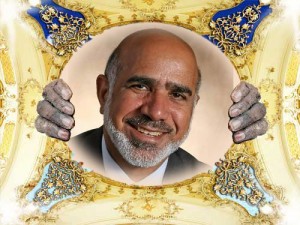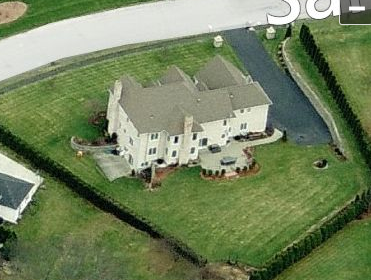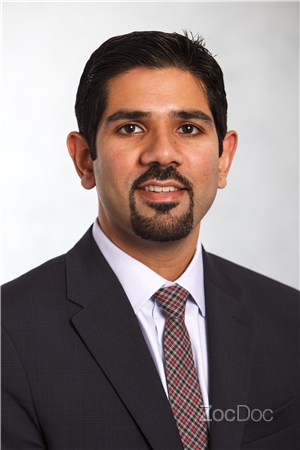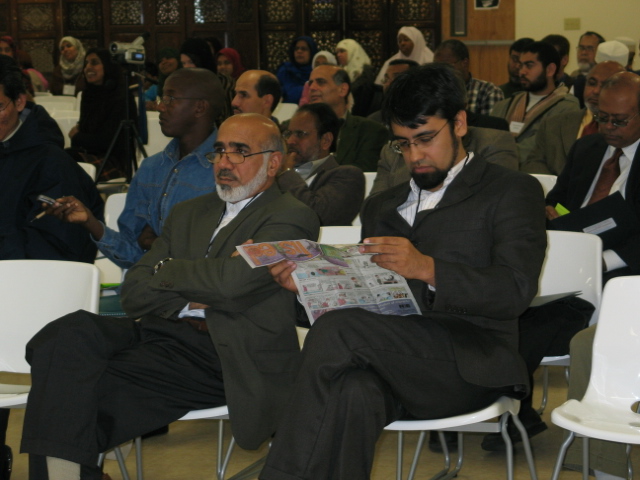Dr. Mohammad Saleem Bajwa
- ICNE – Islamic Council of New England
- ISWM – Islamic Society of Western Massachusetts
- Elkader Farm Holdings – Red Fire Farm – Stony Brook Valley Farm
Bajwa, an internist in a private practice affiliated with Holyoke Medical Center, is one of the original founders of the Islamic Society. The long-time board member has served in many capacities since the opening of the mosque and community center in 1984. He retired this past spring 2013 after serving the last four years as president.
University of the Punjub
King Ed Medical College – Lahore, PK
Bajwa is a founding member of the Islamic Society of Western Massachusetts that has its mosque and center in West Springfield.
As treasurer of the Islamic Council, Dr. Bajwa manages all the money that American or foreign investors want distributed to further the cause of Allah from this modest headquarters in South Hadley.
NOTES AND QUOTES
“In the interfaith programs,” said Dr. M. Saleem Bajwa, a Holyoke-based physician and society member, “we explore the common ground and also highlight any differences between Muslims and Kafirs.
In the case of Islam, ethics are based on the original sources, which are the Koran and Sunnah, that is, the sayings and practices of the Prophet Mohammed.”
For the past 18 years, he has been the executive director of the Islamic Council of New England, an umbrella organization of Islamic centers and societies of New England, actively hosting inter-faith programs to build alliances and learn from one another.
In addition, for more than a decade, Bajwa has served on the Interfaith Council of Western Massachusetts.
Bajwa came to the United States for post-graduate medical training in 1969 with the intent to return to his native Pakistan. Ironically, he recalls, it was at a time the Nixon administration had “opened up immigration for professionals, especially doctors.”
“They would pick us up at the airport and give us the royal treatment,” he recalled. And, Bajwa said, he liked the opportunity he saw in America and worked hard to achieve its promise.
He is proud of what he has given back to his adoptive country, both as a professional and as a devote Muslim and member of the Interfaith Council of Western Massachusetts. His sons, a lawyer and a neurologist, both live in the United States, while his daughter is a doctoral candidate studying Arabic in London.
Bajwa and his wife grew up in Pakistan and have lived in the United States for over two-thirds of their lives. They still hold dear the traditions of their family and the staples of dates, fruit and special drinks made with yogurt that go on their Ramadan meal table each evening.
Bajwa has eight grandchildren between the ages of 2 and 13. He shared how his family encourages them to participate during the special month.
“In the interfaith programs we explore the common ground and also highlight any differences between Muslims and non-Muslims. In the case of Islam, ethics are based on the original sources, which are the Koran and Sunnah, that is, the sayings and practices of the Prophet Mohammed.”
“Right after 9/11 a few of the single guys who were in the process of settling here were apprehended, kept in secret and deported. They were never heard from until they were back in Pakistan. All it took was a little suspicion that was never proven.”
Since 9/11, Bajwa no longer travels abroad.
“Coming off the plane, I would be told, “Come over here, sir.’ I would be taken to an exam room, told to sit and look straight ahead and not to make a phone call or touch my luggage. Of course, after a few hours of tension they would find nothing,” Bajwa said. “I don’t mind in that it is better to check, but if these are random checks why do they pick me up and why don’t they have a record of how many times they have checked me? Being picked up from the plane with the public watching, I don’t feel good about that.”
“We are always fearful,” he said. “Every now and then there have been physical assaults on the center. Our signs and entry posts have been defaced and stones thrown through the windows. There have also been assaults to individuals. These are sometimes physical and sometimes verbal slurs that create an environment of fear and hate.”
“Our wish for the open house is to dispel any myths about the Muslim religion and to increase understanding. We want to continue building bridges and enhancing friendship with our neighbors and the community that we are a part”
Members of the society continue to face stereotyping in public, slurs and minor assaults at politicized times, but this is on the decline as there is a growing awareness that Islam is a religion of peace and tolerance.
Terrorism and terrorists have no place in Islam.
Kamran Bajwa
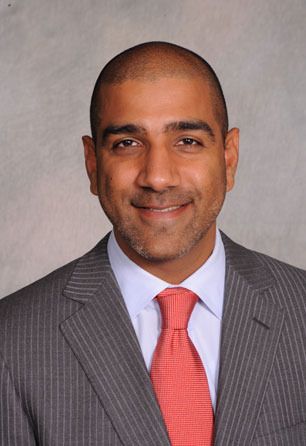
Kamran is a busy globe trotting attorney, but when he comes home to relax he likes to get his hands with with a little halal butchering.
A Visit to Stony Brook Valley Farm
We talked about kosher slaughter. A good kosher slaughter, done with a flawless steel knife so sharp that it must slice paper, is quick and painless, the cut effortlessly made by the weight of the knife. Kamran talked about using Bilal’s kosher knife for last summer’s Eid, marveling at how easily it cut.
We saw the knife later—an impressive Weimar-era German blade with an ebony handle that he picked up on EBay.
The blade is squared off at the end to avoid puncturing the animal’s throat, a mistake that is painful for the animal and invalidates the religious validity of the slaughter. There are many little mistakes that can invalidate a kosher slaughter, which means that kosher standards are high. We can learn a lot from the Jewish community about perfecting technique.
Dr. Rizwan Saleem Bajwa

